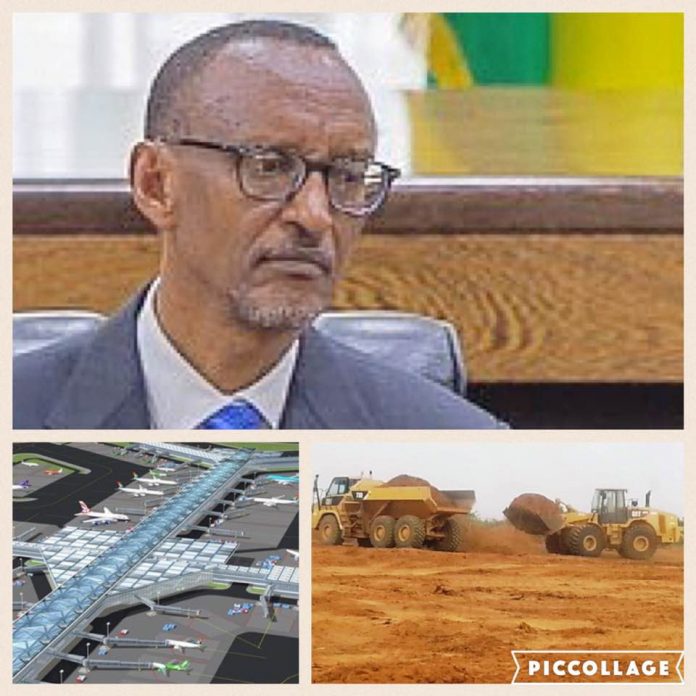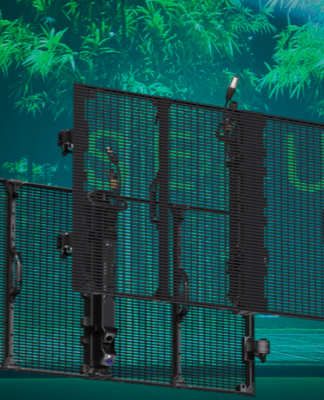By David Himbara
Kagame Signed A 25-Year Concession With A Foreign Investor To Build/ Operate An International Airport. A Year Into Construction, Kagame Demanded A Redesign Of The Airport. May Not End Well.
General Paul Kagame dreams of turning Rwanda into a regional services hub. Towards this end, he decided to build three mega infrastructure projects – an airline, a international airport and a convention centre. Kagame spent over US$2 billion building a national airline and convention centre. He could not raise money for building the airport, however, because of the debt ceiling conditionality of International Monetary Fund. Kagame instead turned to a foreign investor, Mota Engil, an international construction and infrastructure management company, to build and operate the airport. The two sides then signed a concession agreement under which Mota Engil was to build and operate the New Bugesera International Airport (NBIA) for 25 years. At a cost of US$800 million, NBIA is to be built in five phases. Construction of Phase 1 began in 2017, to be completed in 2020. The foundation works were completed in 2018 as shown here.
The eight known elements of the concession agreement for building the New Bugesera International Airport.
The eight known elements of the concession agreement on NBIA may be summarized as follows:
- NBIA is owned by the Bugesera Airport Company (BAC), a special purpose vehicle responsible for the construction and operation of the airport.
- BAC has two stakeholders, namely, Mota Engil that holds 75 percent of NBIA, and Aviation Travel and Logistics (ATL), the Government of Rwanda agency that owns 25 percent.
- Mota Engil has a 25-year concession to finance, build and manage NBIA with an optional extension of 15 years.
- Phase 1 investment into NBIA is US$418 million – to rise to US$800 million by Phase 5.
- Seventy (70) flights per day are envisaged for Phase 1, rising to 171 flights per day by the end of Phase 5.
- Construction of Phase 1 started in August 2017, to be completed by 2020.
- Ground services will be provided by RwandAir as the anchor airline for NBIA.
- Airport Consulting Vienna (ACV), a specialist in commercial airport development and operations is the technical advisor to NBIA.
Suddenly, Kagame demanded the redesign of airport, and brought onboard Qatar as a new investor – effectively halting the construction of the airport.
Somewhere along the way, Kagame decided he wanted a more impressive international airport. He demanded a redesign of the airport – as result, construction was halted in March 2019. It was during this period that the talk about Qatar’s potential investment into Rwanda began to circulate. Kagame likely became aware that Qatar had announced a year earlier its intension of investing US$800 million in Africa. Kagame switched into high gear in courting the Emir of Qatar. Kagame visited Qatar several times, most recently on October 29, 2019. The Emir made a state visit to Rwanda in April 2019. The deals on NBIA and RwandAir were initially floated during this visit, according to The East African:
“In April, the Emir of Qatar Sheikh Tamim bin Hamad Al Thani was in Kigali on a three-day state visit and the two leaders held bilateral talks. They also signed an agreement to bolster aviation investments and co-operation, with Qatar promising to become a major investor in Rwanda’s new Bugesera Airport. The governments also signed an air service agreement…These talks likely paved the way for talks to sell RwandAir shares to Qatar Airways.”
Kagame is widely known for enticing foreign investors only to unceremoniously kick them out.
Where does the entry of Qatar into NBIA and RwandAir leave Mota Engil? Kagame is widely known for dishonouring investor agreements. Dane Associates, Chevron, Bakri International Energy, Vanoil Energy Ltd, and Terracom are some of the foreign companies forced out of Rwanda over the years. The US Embassy in Rwanda described the sudden departure of Chevron from Rwanda as follows:
“Rwanda can ill afford to lose high profile investors like Chevron. The country is struggling to overcome its reputation as a difficult place to do business. Despite aggressive marketing by President Kagame and a seemingly endless stream of potential investors, Rwanda has failed to attract new investment from first tier multinationals. While Chevron has been discrete in abandoning its business interests in Rwanda, other multinationals will surely take note of the oil company’s departure. Chevron’s withdrawal also raises questions about the country’s supposedly squeaky clean record on corruption.”
How Kagame kicked out Canada’s Vanoil was described as follows:
“Vanoil spent more than six years working in the Lake Kivu region, which straddles the border between Rwanda and the Democratic Republic of Congo (DRC). The exploration has been promising so far, as the company identified what could be a large gas deposit. Vanoil hopes it is part of the system that yielded major discoveries in Uganda for Heritage Oil PLC and Tullow Oil PLC…The government abruptly ended contract negotiations and terminated Vanoil’s rights to develop the basin…The concern for shareholders is that the government recognized the discovery has promise and wants to sell the concessions for a large profit.”
The Mota Engil case may not end well for Kagame if he plays his usual tricks – the investment is guaranteed by no less than the World Bank’s Multilateral Investment Guarantee Agency.
It appears that Mota Engil sought guarantees covering its equity investments in Rwanda from the World Bank’s Multilateral Investment Guarantee Agency (MIGA). Mota Engil wisely sought MIGA guarantees against such risks as transfer restriction, inconvertibility, expropriation, breach of contract, war, and civil disturbances. The World Bank is the top aid-giver to Rwanda and touts Rwanda as Africa’s second best place to do business. Kagame will therefore think twice before throwing Mota Engil out. All eyes are on Kagame.































































